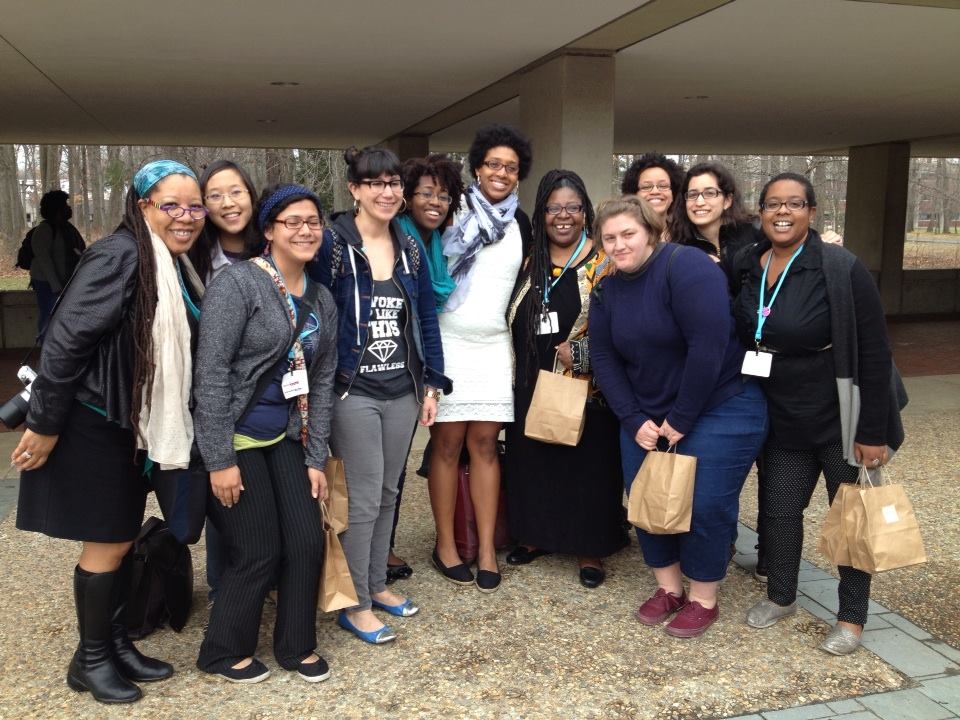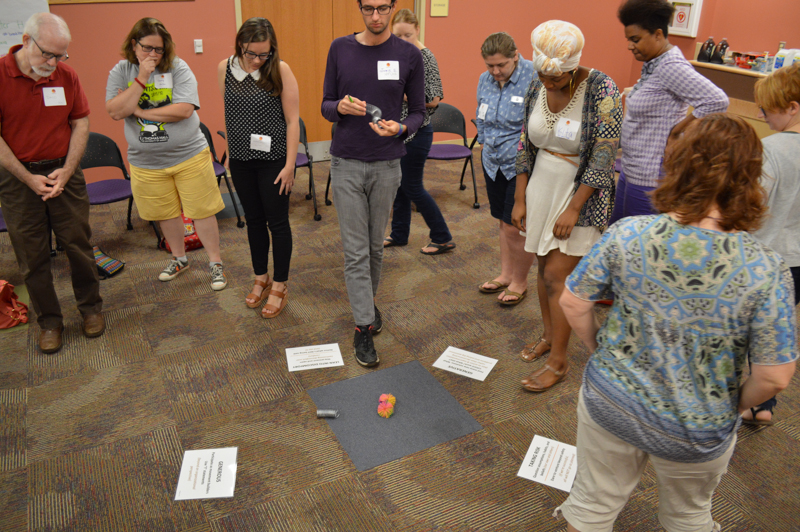|
By Farah Ardeshir CLPP. Pronounced CLIP yet not meant to cut off, trim, pare, or curtail. But, it's funny because I would use all those adjectives to describe the manner in which we have recently seen civil rights and civil liberties cut off, trimmed, pared and curtailed. CLPP is the exact opposite. Civil Liberties and Public Policy Program, now you know it as CLPP, is a "reproductive rights and justice organization" who "for over 30 years, CLPP has been working to realize a world in which all people have the economic, social, and political power necessary to make healthy decisions about our bodies, families, sexuality, and reproduction." It's not just a conference where you hoard all the free event goodies, of course, that happens, but before you reach that point of geekery, you've officially put your cool face on because reproductive freedom heroines are roaming about, often standing nearly 2 feet from you in the 100 foot lunch line. If that isn't enough, you might be ogling over the food. I'm a foodster (made that up) who looks forward to rating their food because it doesn't taste like conference food. Check. It's definitely an event for dreamers. And it's most certainly a space for queers, for hip hop lovers, for femme queers, for friendly people, for dancers, for #LaverneCox lovers (wish she would be a keynote speaker), for Queen Bey disciples, and for anyone else you can think of that a) believes reproductive freedom is necessary to have a stake in for current and future earthlings and b) also believes it cannot truly be achieved without prioritizing immigrant rights, racial justice, trans justice, queer liberation, (dis)ability justice and c) in some way participates in that progress. I remember feeling the whole room swallow up the chatter when Monica Raye Simpson, Executive Director of SisterSong, stepped onto the stage during the open plenary and sang. Being a dreamer, I swelled up with a sense of unfettered optimism thinking that the entire room was echoing my little inner voice dialogue, "Wow, Monica, you are so brave up there. This is beautiful. Why doesn't Congress host stuff like this?" So, I'm taking this moment to spread the gospel. Here's what happened and what will hopefully happen when you go to CLPP: Colored Girls Hustle wipes the floor while the whole crowd claps along with them. Loretta Ross, founder of SisterSong, and Dázon Dixon Diallo, MPH, founder of SisterLove recount historical moments in the reproductive justice movement and share visions of what will come for the movement. Found a little trashed up piece of paper at the last moment and got it signed by Loretta. Word. Made some of the greatest fellow organizer and activist friends spread across the United States. Listened to Deborah Peterson Small lecture about Marxism, White Supremacist Capitalistic culture, and state-sanctioned criminalization of black bodies and pregnant bodies. All of my academic dream topics in one lecture. Purchased a zine that afforded me a great deal of emotional support called Transplants, Sowing the Seed of Gender in the Garden. You can find your own copy at [email protected]. Foolishly sang in unison with a group of Bey lovers to the entire visual album. What can be better than that? Like I said earlier, I hope that Laverne Cox is a keynote speaker in the near future. I hope there is a kickball game because a body gets stiff after hours of sitting through lectures. I would love to see Autostraddle send a few journalists to CLPP with swag in tow. It would also be great if the seminar on how to work in the movement extended into a mini job fair for participants. For a lot of us, we travel a great distance to reach CLPP so making the most of it with a mini job fair would be smashing. Bon voyage, kids. It's not all daisies and daffodils. You're going to hear people say things you disagree with. You'll have long conversations about engaging your community in different ways and short conversations about where to find coffee, immediately. All in all, you'll think and criticize and create and envision and learn.
0 Comments
RADICAL COLLABORATIONS IN OUR MOVEMENTS FOR JUSTICE |
AuthorFriends of KHJN. Archives
June 2023
Categories
All
|



 RSS Feed
RSS Feed